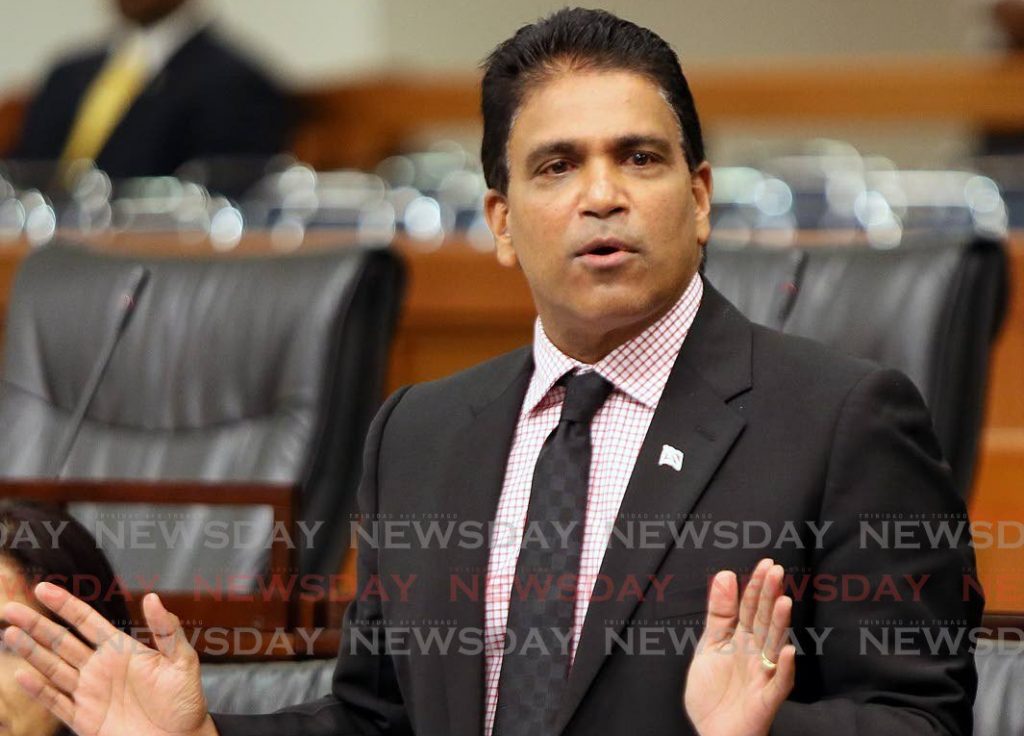Local Government Reform Bill passed in House

The report of the Joint Select Committee (JSC) on the Miscellaneous Provisions (Local Government Reform) Bill, 2020 was adopted in the House of Representatives on Monday. There were 20 votes for, zero votes against and 12 abstentions.
The acceptance of the report followed three days of debate on March 23, April 8 and Monday.
The JSC was set upon October 14, 2020 to review the Miscellaneous Provisions (Local Government Reform) Bill, 2020, entitled “An Act to amend the Municipal Corporations Act, Chap. 25:04, the Burial Grounds Act, Chap. 30:50, the Cremation Act, Chap. 30:51, the Advertisements Regulation Act, Chap. 30:53, the Recreation Grounds and Pastures Act, Chap. 41:01, the Highways Act, Chap. 48:01, the Dogs Act, Chap. 67:54, the Property Taxes Act, Chap. 76:04 and the Planning and Facilitation of Development Act, No. 10 of 2014."
The bill amended nine pieces of legislation with 11 clauses.
After the debate, the JSC report was accepted, and the bill went to the committee stage, where no amendments were proposed. The bill was then read for a third time, and passed with 20 votes for, zero votes against and 12 abstentions. The bill as proposed called for a simple majority.
Speaking during the debate on Monday, Oropouche East MP Dr Roodal Moonilal said the executive council proposed in the bill was similar to the Cabinet of the government, and asked why, if the Cabinet did not work to provide resources to local government, it was presumed that an executive council would be successful.
He said allowing young people could enter straight into politics from age 21 meant they would not have the experience to serve their constituents properly.
“Previously members of these councils were meant to be part-time, and while I don’t necessarily approve of that, it was felt that politicians should be men and women who bring experience of life to bear in the debate/deliberations.
"Likewise, in local government, you bring what experiences you had from your profession to bear on deliberations, policies, and programmes.
"These days we are creating a profession called politician, because if you enter office at 20 when you are legally entitled to, you won’t have the years of experience to bring to bear.”
Moonilal asked why government was setting up a secondary roads company to fix local roads, rather than leave that in the hands of local government authorities.
“Is it that you don’t trust them to pave the roads? I would prefer to see the $100 million being given to the secondary roads company given to local government to deal with potholes. Many times as an MP, six out of ten complaints are about roads and drainage.
"How do you pave roads if you’ve closed the refinery and we no longer produce bitumen, and it’s expensive to import?”
Moonilal asked where the finance minister got the figure of $30 million for local government bodies from property tax on residential properties, and whether the figure was based on any studies based on population sizes.
He said there was a case to be made for strengthening local government resources and bodies to respond to community disasters.
Laventille East/Morvant MP Adrian Leonce, responding to Moonilal, said if the people involved in the executive council as formed by the bill were not fulfilling their function, they could be voted out as part of accountability to the nation for their performance.
He said allowing local government councillors direct access to resources meant they could incorporate more local content into the services provided.
“We have local contractors begging their representatives to allow them to have a greater input in community development. The executive council is there to formulate, advise, and make changes in policy that would benefit the community. It will bring trust, as when a councillor is approached about a problem, they can do something quickly.”
Leonce said when council members work full time, they will be able to focus more time and ideas on the people who elected them. He said young people who entered politics could develop management skills and learn about solving community problems.”
He said the figure proposed by the finance minister was an average, and that any increase in resources would be welcomed by local government.
In wrapping up the bill, Arouca/Maloney MP Camille Robinson-Regis said the legislation had gone through many rounds of consultation, despite protestations to the contrary by the Opposition.
She said the property tax as proposed hinges on the independence of local government bodies.
“They will become more independent, as they will use the taxes collected to give their burgesses what they need. There are many situations where corporations have said they need more to do more, and we are of the view that once property tax is collected and put towards what it is supposed to (be used) on, it will work in their favour.”


Comments
"Local Government Reform Bill passed in House"